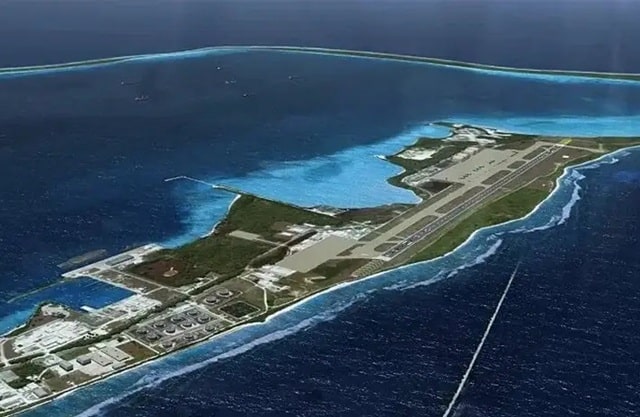Mauritius has contested a UK agreement concerning the Chagos Islands, a decision that could redefine the sovereignty of the Indian Ocean territory. According to a report in Times, UK, the issue has created tensions between the UK, Mauritius, the United States, and international legal bodies.
On Monday, Mauritius’s new Prime Minister, Navin Ramgoolam, informed U.S. Secretary of State Antony Blinken that his government rejected the October 3rd agreement signed by his predecessor. Under this deal, the UK committed to transferring sovereignty of the Chagos Islands to Mauritius while retaining a 99-year lease on Diego Garcia, a strategic hub for U.S. military operations.
“We have made a counter proposal,” said Ramgoolam, reflecting Mauritius’s dissatisfaction with the compensation terms. His deputy, Paul Bérenger, criticized the UK’s approach as “nitpicking” over compensation amounts. Times, UK cited a British source stating, “It is all about the money,” revealing that Mauritius initially demanded £800 million annually and billions in reparations, a sum deemed “crazy money” by some negotiators.
This financial wrangling has intensified as Labour, now in government, remains reticent about the specifics of its compensation offer. Observers believe the final bill, likely influenced by heightened Mauritian demands, could far exceed earlier expectations.
The sovereignty dispute over the Chagos Islands dates back to the 1960s, when the UK evicted the Chagossian population to establish the U.S. base on Diego Garcia. In 2019, the International Court of Justice (ICJ) ruled against the UK’s claim to the islands, further isolating Britain in global forums.
The legal and diplomatic fallout has been exacerbated by Brexit, with Times, UK highlighting that “94 countries supported Mauritius in the UN, leaving the UK in an uncomfortable position.” Successive UK governments, including the administrations of Boris Johnson, Liz Truss, and now Keir Starmer, have grappled with the ICJ’s decisions and mounting international pressure to resolve the dispute.
The Chagos Islands’ strategic importance is underscored by Diego Garcia’s role as a key node in Anglo-American intelligence and military operations. According to Times, UK, the base is pivotal for monitoring undersea cables and serves as a counterweight to China’s growing influence in the Indian Ocean.
Negotiations have also been influenced by India, which supports Mauritius due to shared cultural and historical ties. India views the resolution as a step towards countering China’s Belt and Road Initiative in the region.
The U.S., meanwhile, has urged the UK to settle the dispute promptly, fearing a potential shift in regional alliances. As a British official told Times, UK,
The Americans wanted it to go away before a possible Trump presidency complicated matters.
Amid the high-stakes negotiations, the Chagossian community remains sidelined. Many Chagossians, now based in Crawley, West Sussex, were informed of the deal via a Zoom call, with no direct consultation on their fate. Priti Patel, the shadow foreign secretary, called their exclusion “deeply upsetting,” highlighting the emotional toll on a displaced population that has fought for their right to return to their homeland.
The deal’s future is now fraught with uncertainties. The Mauritian government seeks more favourable terms, while UK officials worry about the financial and strategic costs of concessions. Domestically, Labour faces scrutiny over its handling of the issue, with critics questioning whether progressive ideals have overshadowed national security concerns.

